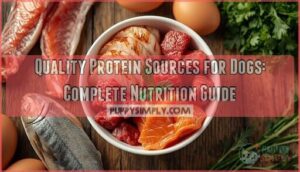This site is supported by our readers. We may earn a commission, at no cost to you, if you purchase through links.
Your body needs roughly 40 different nutrients to function properly, yet most Americans fall short on at least one. That’s where dietary supplements enter the picture—concentrated sources of vitamins, minerals, herbs, amino acids, and other compounds designed to fill the gaps your meals might miss.
The supplement industry has exploded into a $177 billion global market, with products promising everything from stronger bones to sharper memory. But here’s the catch: supplements don’t operate under the same rigorous testing requirements as prescription drugs, and what’s on the label doesn’t always match what’s in the bottle.
Understanding how these products work, what they can realistically deliver, and where the risks hide gives you the power to make choices that actually support your health goals rather than empty your wallet or compromise your safety.
Table Of Contents
- Key Takeaways
- What Are Dietary Supplements?
- Key Ingredients in Dietary Supplements
- Health Benefits of Dietary Supplements
- Risks and Side Effects of Supplements
- Supplement Interactions With Medications
- Dietary Supplement Labeling Requirements
- Regulation and Oversight of Supplements
- Independent Quality Assurance Programs
- Demographics and Market Trends
- Safe Use and Consumer Guidance
- Frequently Asked Questions (FAQs)
- Are there any potential interactions between dietary supplements and prescription medications?
- Can supplements replace prescription medications completely?
- How long should I take a supplement?
- Are supplements safe during pregnancy and breastfeeding?
- Do athletes need different supplements than others?
- Can I take expired dietary supplements safely?
- Conclusion
Key Takeaways
- Dietary supplements operate in a $177 billion global market with far looser FDA oversight than prescription drugs—manufacturers aren’t required to prove safety or effectiveness before selling products, and what’s listed on labels doesn’t always match what’s inside the bottle.
- Supplements can trigger serious risks including organ damage, dangerous interactions with medications like blood thinners and chemotherapy drugs, and toxicity from overdoses of fat-soluble vitamins, with herbal products now causing 20% of liver injury cases in the U.S.
- Third-party certification seals from organizations like NSF International and USP are your only reliable verification that a supplement contains what it claims without harmful contaminants, since federal regulations don’t require premarket testing for purity or dosage accuracy.
- Always consult your healthcare provider before starting any supplement—55% of users trust medical doctors most for guidance, and professional oversight prevents potentially life-threatening pharmaceutical interactions that affect medication effectiveness and safety.
What Are Dietary Supplements?
Dietary supplements aren’t some mystery ingredient you pick up on a whim—they’re concentrated sources of nutrients and other compounds designed to support your health when your diet falls short. You’ll find them packed into tablets, capsules, powders, and gummies, each delivering specific vitamins, minerals, herbs, or other active ingredients your body might need.
Before you grab that bottle off the shelf, here’s what you actually need to know about what these products are and how they work.
Definition and Types
You’re taking control of your health—so what exactly counts as a dietary supplement? Under federal law, it’s any product you take by mouth to boost your diet. These products must contain specific dietary ingredients:
- Vitamins and minerals like vitamin D or calcium
- Herbs and botanicals such as echinacea or garlic
- Amino acids, enzymes, and probiotics supporting various body functions
Regulatory standards classify supplements separately from conventional foods or medications.
Understanding dietary supplement use is essential for making informed decisions about your health.
Common Forms and Delivery Methods
You’ll find supplements in multiple formats, each designed for specific absorption needs. Capsules and tablets dominate the market—accounting for 60.4% of global revenue—because they’re stable and convenient.
Powders let you customize doses and mix easily into drinks. Liquid delivery offers rapid absorption, while gummies make daily routines taste better.
Sophisticated encapsulation technologies, including liposomal and time-release formulas, improve bioavailability for targeted nutrient delivery.
The growth of the supplements market is driven by increasing demand for personalized nutrition products.
Popular Supplement Categories
Beyond form, you’ll encounter distinct categories designed to address different health goals. Multivitamin supplements provide complete nutrient coverage, while vitamin D, calcium, and magnesium target bone strength. Probiotics support gut health, and omega-3 fatty acids benefit heart function.
Herbal remedies like ashwagandha address stress, and amino acids fuel muscle recovery. These mineral benefits and targeted formulas let you personalize your wellness strategy.
Key Ingredients in Dietary Supplements
Not all supplements are created equal, and what’s inside the bottle matters more than the marketing on the front. The ingredients you’ll find range from basic vitamins your body needs daily to complex plant extracts with centuries of traditional use.
Let’s break down the three main categories you’ll encounter when reading supplement labels.
Vitamins and Minerals
Vitamins and minerals form the backbone of most supplements you’ll encounter. About 67% of people worldwide don’t get enough vitamin E, while calcium and iron fall short for roughly 66% and 65% of the global population, respectively.
Mineral deficiency affects nutrient absorption differently between sexes—women face more issues with iron and selenium, men with calcium and zinc.
Understanding dietary balance helps prevent both shortfalls and vitamin toxicity from excessive intake.
Herbal and Botanical Ingredients
Herbal supplements and botanicals now comprise one of the fastest-growing segments in the wellness world, projected to climb from $101 billion in 2025 to over $201 billion by 2035.
You’ll find adaptogens like ashwagandha for stress relief, turmeric for inflammation, and green powders packed with phytochemical benefits.
These plant compounds deliver natural antioxidants, though regulatory scrutiny around safety continues to intensify globally.
Amino Acids and Enzymes
You’re tapping into powerful building blocks when you choose amino acid supplements—they fuel protein synthesis, muscle recovery, and even blood glucose balance. Enzymes take another route entirely: breaking down nutrients so your body can actually absorb what you eat.
Together, they’re projected to hit $14 billion by 2030, driven by fitness enthusiasts and anyone chasing better digestive health and nutrient absorption.
Health Benefits of Dietary Supplements
Supplements can’t replace a balanced diet, but they do fill specific nutritional gaps when your body needs extra support. Think of them as targeted tools—calcium strengthens bones, omega-3s support your heart, and certain vitamins protect your vision as you age.
Here’s what the research actually shows about supplements that deliver measurable health benefits.
Bone and Joint Health
Your bones and joints need more than hope—they need strategic support. Several supplements target structural health and discomfort, though evidence remains mixed. Consider these key players:
- Glucosamine and chondroitin may ease joint pain management in moderate arthritis treatment cases
- Calcium and vitamin D strengthen bone density for osteoporosis prevention
- Collagen peptides support cartilage repair
- Omega-3 fatty acids reduce inflammatory joint responses
- Magnesium aids bone mineralization
Short-term effects show promise, but long-term clinical importance isn’t established.
Heart and Cardiovascular Support
Your heart doesn’t gamble—it needs proven allies. Omega3 fatty acids from fish oil deliver Omega Benefits that matter: reduced heart disease mortality and better cardiovascular health and supplements outcomes.
Coenzyme Effects include improved heart muscle performance in failure patients. Fatty Acid Research confirms these Heart Supplements work best when you already have High cholesterol or existing coronary issues.
Cardio Health demands precision, not guesswork.
Immune System Support
Your immune system craves specific fuel—not false promises. Vitamin C benefits include 4% fewer respiratory infections and 9% shorter colds. Zinc supplements reduce infection duration, especially in children with nutrient deficiencies.
Herbal remedies like echinacea boost natural defenses through immune boosters, though autoimmune risks exist. Probiotics support digestion and immune function.
These supplement benefits matter when healthcare guides your choices.
Cognitive and Vision Health
Brain function starts to slip long before you notice—but the right nutrition and health choices can push back. Cognitive support through multivitamins slows mental aging by two years, while omega-3 fatty acids cut dementia risk by 20%.
For eye health and supplements:
- Lutein and zeaxanthin boost macular density after six months
- Vitamin D maintains neural pathways and mental clarity
- B vitamins (B6, folate, B12) reduce cognitive impairment
- Vision supplements with zinc preserve sight in AMD patients
- Omega-3 fatty acid improves memory recall and executive function
Supplement safety demands healthcare guidance before starting.
Risks and Side Effects of Supplements
You might assume supplements are harmless because they’re sold over the counter, but that’s not always the case. Many contain active ingredients powerful enough to trigger unwanted reactions, damage organs, or interfere with medications you’re already taking.
Supplements aren’t harmless—they contain active ingredients that can trigger reactions, damage organs, or interfere with your medications
Here’s what you need to watch out for when you’re adding supplements to your routine.
Common Adverse Reactions
While supplements often seem harmless, you can’t ignore the real side effects. Gastrointestinal issues like nausea and constipation from iron supplements are common, while allergic responses to herbal ingredients can trigger dermatitis or asthma.
Cardiovascular risks include arrhythmias from high-dose vitamin D, and neurological effects like confusion signal toxicity symptoms.
Supplement side effects intensify with multi-ingredient products, making supplement safety and risks critical considerations before use.
Organ and Liver Injury Risks
Beyond immediate reactions, your liver faces serious danger from certain supplements. Herbal products now cause 20% of hepatotoxicity cases in the U.S., with acute liver failure rising eightfold over 25 years. Bodybuilding formulas with anabolic steroids, green tea extract, and popular botanicals like turmeric can trigger organ damage requiring hospitalization—sometimes even transplantation.
What you’re risking with unregulated supplements:
- Liver injury that mimics acute viral hepatitis, with enzymes skyrocketing above 1,000 IU/L
- Hepatotoxicity from multi-ingredient products where toxic ingredients remain unidentified
- Organ failure requiring liver transplantation in nearly 9% of severe cases
- Pharmaceutical interactions and toxicity that conventional medications rarely match in severity
- Supplement overdose consequences appearing unexpectedly—days or years after you start taking them
Overdose and Toxicity Concerns
Toxicity risks escalate when you exceed recommended doses. From 2000 to 2012, U.S. poison control centers logged 275,000 supplement exposures—with serious medical outcomes in 4.5% of cases. Yohimbe, ma huang, and energy products topped the list for fatal interactions and hospitalizations.
Fat-soluble vitamins like A and D cause organ and nerve damage when overdosed, while excess vitamin C triggers kidney stones.
Supplement Interactions With Medications
Mixing supplements with medications isn’t just a minor concern—it can turn your treatment plan upside down or even put you at serious risk. Some supplements interfere with how your body processes prescription drugs, while others can heighten or block their effects entirely.
Here’s what you need to watch out for when combining supplements with common medications.
Blood Thinner Interactions
If you’re taking blood-thinning medication, your supplement choices can dramatically alter your safety. Warfarin interactions with common supplements create serious bleeding risk factors—nearly 70% of popular supplements interfere with anticoagulant effects. Understanding pharmaceutical interactions and warnings protects you from dangerous outcomes.
Critical supplement safety concerns include:
- Garlic, ginger, and ginkgo inhibit platelet function, escalating bleeding risks
- St. John’s Wort reduces warfarin effectiveness, raising clot formation dangers
- Fish oil and vitamin E possess intrinsic anticoagulant effects requiring medication monitoring
- Over half of patients remain unaware of blood-thinning medication interactions with supplements
Chemotherapy and Anesthesia Concerns
Your cancer treatment decisions deserve protection from hidden dangers. Approximately 17.5% of chemotherapy patients use antioxidant supplements—but this choice increases cancer recurrence risk by 41%. Anesthesia safety requires discontinuing herbal supplements two weeks before surgery, as garlic, ginkgo, and fish oil prolong anesthesia effects and heighten bleeding complications. Medical guidance on pharmaceutical interactions and supplement interactions with medications isn’t optional—it’s essential for survival.
| Supplement Risk | Impact on Treatment |
|---|---|
| Antioxidants during chemotherapy | 41% increased recurrence risk |
| Vitamin B12 with cancer treatment | Markedly worse survival |
| Herbal supplements before anesthesia | Prolonged effects, bleeding complications |
Impact on Prescription Drugs
Your medications face invisible threats when combined with supplements. Nearly half of supplement users risk dangerous drug interactions that can tank your treatment or trigger toxicity.
St. John’s Wort sabotages antidepressants and birth control by speeding drug breakdown. Calcium disrupts blood thinner dosing. Ginkgo amplifies bleeding risks. Iron blocks antibiotic absorption.
Pharmaceutical interactions demand your vigilance—dosage adjustments aren’t optional when you’re mixing pills and powders.
Dietary Supplement Labeling Requirements
You can’t know what’s really in a supplement bottle unless you know how to read the label. Federal regulations require manufacturers to disclose specific information that gives you control over what enters your body.
Let’s break down the three key elements every supplement label must include by law.
Supplement Facts Panel
You’ll find the Supplement Facts panel on every dietary supplement—it’s your regulatory roadmap. This panel design follows strict labeling requirements under 21 CFR § 101.36, ensuring ingredient disclosure, serving size clarity, and nutrient quantities appear consistently.
The header must dominate the panel in the largest type, while dietary ingredients and %DV values follow FDA regulatory guidance for supplement labeling and label compliance.
Ingredient and Dosage Disclosure
You deserve to know exactly what you’re consuming. Disclosure Requirements under DSHEA mandate manufacturers list every Dietary Ingredient with Dosage Accuracy, yet Label Transparency falls short when proprietary blends obscure amounts.
Ingredient Variability between batches complicates consistency, while Adulteration Risks emerge when hidden pharmaceuticals contaminate products.
Supplement Facts panels should detail weights and percentages, but gaps in Dietary Supplement Regulation allow loopholes that undermine your safety.
Health Claims and Disclaimers
You’ll spot bold promises on supplement labels—”Aids Heart Health” or “Boosts Immunity”—but these Structure/Function Claims aren’t FDA-approved medical treatments. Claim Regulations under Dietary Supplement Regulation require that boxed disclaimer: “This product isn’t intended to diagnose, treat, cure, or prevent any disease.”
Despite Label Compliance and Disclaimer Standards, Health Claim Misuse thrives because 62.5% of consumers misinterpret vague Labeling and Advertising Claims as disease prevention, undermining Supplement Safety and Efficacy expectations despite FDA Oversight.
Regulation and Oversight of Supplements
You might assume the FDA treats supplements the same way it manages prescription drugs, but that’s not how it works. The rules are looser, and the responsibilities fall in different places than you’d expect.
Here’s how regulatory oversight actually breaks down in the supplement world.
FDA Regulatory Role
The FDA oversees dietary supplements under the Dietary Supplement Health and Education Act of 1994, but here’s what you need to know: these products don’t require premarket approval like drugs do. Instead, regulatory compliance focuses on four key areas:
- Label compliance ensuring truthful, non-misleading information
- Market surveillance monitoring for adulterated or misbranded products
- Enforcement actions including warning letters and mandatory recalls
- Post-market oversight tracking adverse events and safety concerns
Manufacturer Responsibilities
While the FDA sets the rules, manufacturers shoulder the real burden of regulatory compliance. You’re trusting companies to guarantee their dietary supplements meet Good Manufacturing Practices, verify ingredient purity, and maintain labeling standards.
They must establish quality control systems, conduct safety monitoring, and report adverse events—all before products reach your hands. Manufacturing and labeling accountability lies squarely with them, not regulators.
Enforcement and Market Surveillance
But Regulatory Compliance means little without teeth. The FDA monitors the market through Safety Surveillance systems and Product Recalls, yet Enforcement Challenges persist—only 69% of recalled supplements were successfully removed between 2004 and 2011.
With roughly 70% of companies violating regulations in 2023, Market Oversight remains hampered by DSHEA’s framework, which requires proving harm before action, not prevention.
Independent Quality Assurance Programs
Since the FDA doesn’t approve supplements before they hit store shelves, third-party certification seals have become your best way to confirm what’s actually in the bottle matches what’s on the label. Organizations like NSF International and USP (United States Pharmacopeia) run independent lab verification programs that test for dosage accuracy, purity, and contamination.
When you see their seals, it means the product passed rigorous quality control standards that manufacturers aren’t legally required to meet under DSHEA. This third-party tested verification doesn’t guarantee effectiveness, but it does confirm the supplement contains what it claims without harmful levels of contaminants.
Look for these certification seals on bottles—they’re your clearest signal that a company submitted to voluntary compliance standards beyond basic regulatory compliance and enforcement requirements. It’s supplement safety you can actually verify.
Demographics and Market Trends
The supplement industry isn’t just growing—it’s exploding. Understanding who’s buying these products and why can help you see where you fit in the bigger picture.
Let’s look at the numbers that shape this multibillion-dollar market and what they reveal about supplement use across different groups.
Global Market Size and Growth
The dietary supplements market is booming—valued at approximately USD 203 billion in 2025 and projected to nearly double to USD 402-415 billion by 2033-2034. Here’s what’s driving this explosive growth:
- Health awareness and preventive care are pushing demand for nutrition and dietary ingredients
- Aging populations need targeted supplement safety solutions
- Chronic disease management relies increasingly on dietary supplement support
Regional shares show North America leading with 36.5%, while Asia-Pacific accelerates fastest. Consumer behavior increasingly favors online channels, with e-commerce sales forecasts showing nearly 10% annual growth. These market trends and sales forecasts reflect your growing recognition of the health benefits of supplements.
Usage Patterns by Age and Region
Supplement uptake varies dramatically by age and region. Older adults drive consumption, with 80.2% of U.S. women over 60 using dietary supplements compared to just 49% of younger women.
Regional variations reveal North America leads global consumption, while Asia shows rapid growth despite lower baseline rates.
Understanding these demographic analysis patterns helps you recognize how nutrition and dietary ingredients reach different populations seeking health benefits of supplements.
Trends Among U.S. Consumers
You’ll notice striking shifts in consumer behavior across the U.S. supplement landscape. Market analysis reveals several key supplement trends shaping purchase decisions:
- Vitamin D dominates at nearly 70% usage, with magnesium at 59.5%
- Biotin surged by 9.9 percentage points through 2024
- Women prioritize beauty and hormonal health benefits
- Younger adults favor tailored, plant-based formats
Understanding supplement facts and user demographics helps inform your nutritional health choices through better consumer education and awareness.
Safe Use and Consumer Guidance
You deserve to feel confident about what you’re putting in your body. Making smart choices about supplements means knowing who to trust, what to look for, and where to find solid information.
Here’s how to protect yourself and get the most from your supplements.
Consulting Healthcare Providers
Before you start any supplement, talk to your doctor, pharmacist, or registered dietitian. They’ll give you customized advice based on your health history and medications—because 55% of supplement users trust medical doctors most for reliable information.
Healthcare communication prevents dangerous pharmaceutical interactions, like St. John’s wort reducing heart medication effectiveness. Patient counseling ensures supplement safety through medical guidance customized specifically to you.
Recognizing Reliable Products
Look for clear label transparency on every product you pick up—reliable dietary supplements display a complete Supplement Facts panel with exact ingredient disclosure. Third-party testing seals from USP, NSF, or ConsumerLab prove the product meets consumer safety standards beyond FDA requirements.
Avoid proprietary blends that hide dosages. Choose products with transparent company contact information and third-party tested certification to protect your health.
Government Health Information Sources
You won’t find clearer guidance than what government agencies offer. The National Institutes of Health Office of Dietary Supplements publishes research-backed fact sheets, while the Food and Drug Administration issues safety alerts and regulatory updates under DSHEA.
Access public databases tracking adverse events, explore research funding priorities, and review global standards—these free resources arm you with credible information before you buy.
Frequently Asked Questions (FAQs)
Are there any potential interactions between dietary supplements and prescription medications?
Absolutely—pharmaceutical interactions with herbal contraindications can be life-threatening. Drug interactions, especially blood-thinning medication interactions and anesthesia and chemotherapy interactions, create severe medication safety risks requiring immediate pharmaceutical alerts and toxicity monitoring.
Can supplements replace prescription medications completely?
No, supplements can’t replace prescription medications. They aren’t FDA-approved to treat, prevent, or cure diseases. Stopping prescribed drugs for supplements risks serious health consequences, disease progression, and potentially life-threatening complications.
How long should I take a supplement?
Your doctor recommended iron for anemia—but how long before you stop? Supplement duration depends on your specific deficiency, health goals, and risk of nutrient accumulation affecting long-term effects and safe intake periods.
Are supplements safe during pregnancy and breastfeeding?
Most prenatal vitamins support pregnancy nutrition and maternal health, but you’ll need medical guidance.
Some herbs risk fetal development issues or infant risks during breastfeeding—especially berberine, vinpocetine, and black cohosh.
Do athletes need different supplements than others?
Your body on the court demands more fuel than the average person’s. That’s why athlete nutrition often includes targeted sports supplements—creatine for power, beta-alanine for endurance, vitamin D for recovery—supporting elite training needs beyond standard nutrient intake.
Can I take expired dietary supplements safely?
You can generally take expired dietary supplements without immediate harm—they don’t become toxic. However, potency diminishes over time, especially in water-soluble vitamins, reducing effectiveness and compromising your intended health benefits.
Conclusion
Think of dietary supplements as a safety net, not a replacement for the trapeze. They can catch nutritional shortfalls, but they won’t perform the act for you.
Your best defense? Treat every bottle like a contract—read the fine print, verify the credentials, and loop in your healthcare provider before you commit.
When you approach supplements with both curiosity and caution, you transform a cluttered market into a strategic toolkit that genuinely aids your health.
- https://www.grandviewresearch.com/industry-analysis/dietary-supplements-market-report
- https://www.cognitivemarketresearch.com/dietary-supplement-market-report
- https://www.cdc.gov/nchs/data/nhsr/nhsr183.pdf
- https://globalregulatorypartners.com/fdas-updates-on-dietary-supplement-regulation-in-2025/
- https://en.wikipedia.org/wiki/Dietary_supplement


















